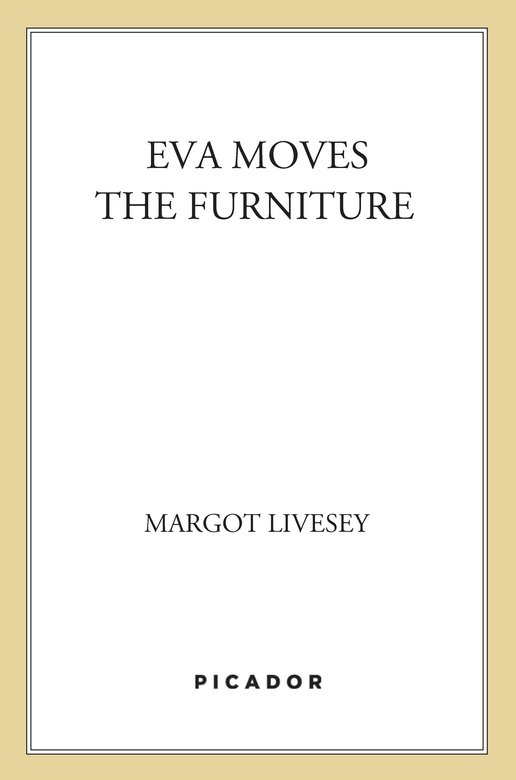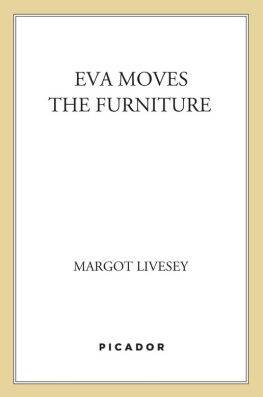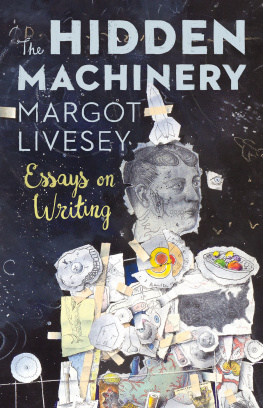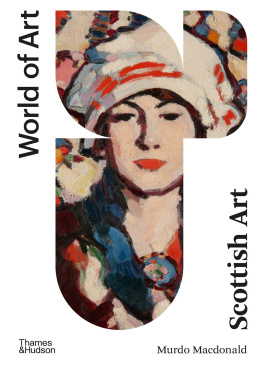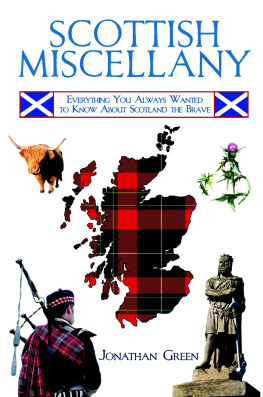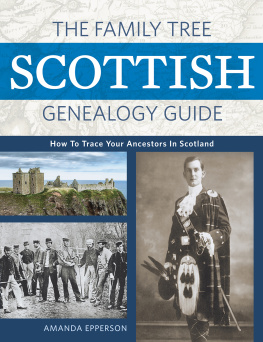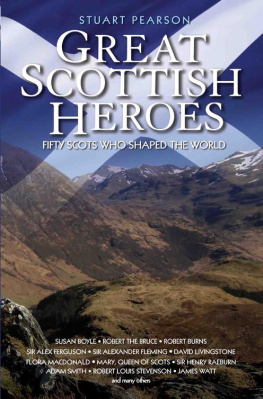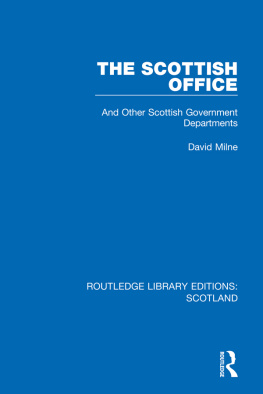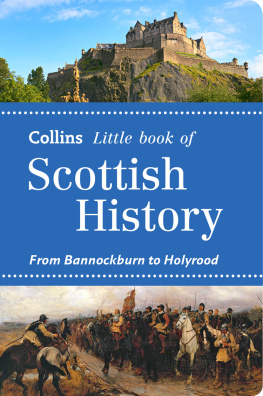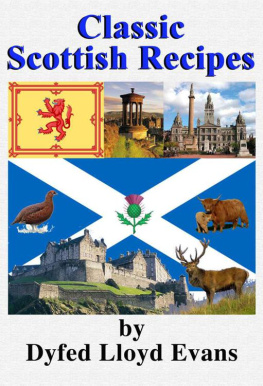A novel written over a decade incurs many obligations. My apologies if any, in the fullness of time, have been forgotten.
In my reading about the Second World War, two books were particularly helpful: A Nurses War, by Brenda McBryde, and Faces from the Fire, by Leonard Moseley. Those familiar with the latter will recognise that Samuel Rosenblum is loosely based on the legendary plastic surgeon Archie McIndoe, head of the famous burns unit at East Grinstead.
Although this novel is set in Scotland, I have taken certain liberties with the landscape. My versions of Troon and Glasgow cannot be mapped exactly onto those real places.
I am grateful to Amanda Urban, who believed that this book could see the light of day, and to Jennifer Barth, John Sterling, and the other wonderful people at Henry Holt for making that possible.
Various friends commented on the manuscript and encouraged me, perhaps unwittingly, to keep going. My thanks to Tom Bahr, Charles Baxter, Robert Boswell, Carol Frost, Eddy Harris, Jim Shepard, Chuck Wachtel.
To those who understood that the life and the work were intertwined and who helped me to live the former and write the latter, I owe a special debt: Eric Garnick, Kathleen Hill, Camille Smith, Holly Zeeb. To Susan Brison, whose friendship has happily sustained me for twenty-five years, I offer my deep thanks.
The story began with Merril and Roger Sylvester on a Scottish hillside. Andrea Barrett helped me to finish it.
This book is for Eva Barbara Malcolm McEwen, whose short life I regret making, in the interests of fiction, still shorter.
MARGOT LIVESEY is the award-winning author of a story collection, Learning by Heart, and the novels Homework, Criminals, and The Missing World. She grew up in Scotland and currently lives and teaches in the Boston area.
In 1551 the Italian surgeon Fiorovanti was travelling in Africa when he came upon two men fighting a duel. The cause is unrecorded: a camel? a woman? While Fiorovanti stood watching, one man sliced off the others nose. The fight continued, but the surgeons attention was elsewhere. He retrieved the flesh from the sandy ground and rinsed it in urine. As soon as the fight ended, he accosted the ownerwinner or loser, again we dont knowsewed the nose back on, applied balsam and bandages. The patient, convinced only that absurdity was being heaped upon his suffering, argued throughout these ministrations. But eight days later, when Fiorovanti removed the bandages, there was the mans face, once again whole.
I do not know when or where Fiorovanti was born, but I was born in 1920 in the lowlands of Scotland, outside the town of Troon, less than thirty miles north of Alloway, where Robert Burns lived. It is a mild-mannered part of the country. The fields are fertile and predictable, with foaming hawthorn hedges and woods of beech, chestnut, and birch. Even as a little girl I judged the landscape inferior to the one I knew from stories, the fierce, dour Highlands where my mother had spent her childhood. My father, who had never travelled north of Glasgow, felt the same. Into his accounts of her life he wove the old legends: stories of the valley where Agricolas lost legion held sway over the blue-faced Picts; of a glen, high in the Cromalt Hills, where the dead carded and spun wool, gathered honey, and made mead and no one could distinguish them from the living. You might think such tales would have been rendered counterfeit by the barrage at Ypres and Armentires, but in my childhood they were still common currency. Perhaps the weight of so many new dead could only be borne with the help of the old.
I arrived in the upstairs room at Ballintyre close to morning on a mild April day after a labour that lasted twenty-four hours. The midwife who attended my mother sat by the bed, knitting a cardigan for her nephew out of the slate-grey wool left over from the endless socks and scarves of the War. The soft clicking of her needles accompanied my mothers struggles.
The midwife turned two sleeves, the earth turned once, and my mothers cries ceased with almost shocking completeness. There, Barbara, said the midwife, her forearms streaked with blood, I knew you could do it. You have a lovely girl.
She held me out towards the bed.
Closer, begged Barbara. Without her glasses the world wavered. Obediently the midwife stepped forward into the circle of light that fell around the oil lamp; Barbara extended a cautious hand. Only then, as she touched my skin, warm, damp, smoother than a rose petal, did her fears subside. She yawned.
The midwife smiled down approvingly. Thats the ticket. You take a wee nap while I show Mr. McEwen his daughter.
Crooked in her arm, I would like to think I gave some sign of protest at leaving Barbaracurled my toes or furrowed my browbut the protests that are recorded came from elsewhere. We were almost at the door when an outburst of sound drew the midwife to the window. In the early morning light a flock of magpies was fighting in the apple tree. The tree was in full bloom, and as the birds tussled among the branches, the blossoms drifted down, like snow, onto the dark soil. With a harsh screech a bird flew away over the garden wall; one by one the others followed.
What is it? asked Barbara drowsily.
Some magpies squabbling in the apple tree. The midwife leaned towards the glass, counting. One, two six, she declared.
Six magpies? Are you certain?
But already we had turned away again. Take a nap, the midwife repeated from the door. Ill be back in a trice.
She carried me down the narrow stair, scarcely wider than a tea tray, to the kitchen, where my father, David, had sat through the night, embroidering a cushion cover. Later he would show me the awkward fern that marked my advent. When the midwife opened the door, he leapt to his feet. The two of them gazed down at me, David blinking back his tears. Eva, he said. Welcome.
The midwife praised his choice of name and sent him to fetch more coal from the scullery. I was tucked into a dresser drawer beside the stove. They had a well-earned cup of tea. David paced back and forth, too excited to sit but sufficiently mindful to ask after the midwifes nephew; she described his engineering exams in detail.
When she had finished her tea, she carried a cup upstairs. How soon did she know that Barbara was not merely asleep? From my own experience, I suspect as soon as she opened the door. Illness has an aura; it hovers above the body. Whatever hope lingered would have been banished by the raspberry hue of Barbaras cheeks, the nickering of her breath.
The doctor took Barbaras pulse, listened to her chest, and shook his head. No penicillin in those days. The influenza was back, he said, and squeezed her hand in farewell.
Saint Cuthberts churchyard already had two whole rows of graves marking the autumn of 1919. In one of my nursing books a map showed how the disease spread north, like oil creeping up a wick. It passed from Manchester to Bradford, Bradford to Newcastle, Newcastle to Berwick, and on up through Scotland until eventually cases were reported as far north as John oGroats. My parents had survived unscathed until the morning of All Hallows, when Barbara fainted at the breakfast table. She was unconscious for four days and confined to bed for a month. Then she had seemed to recoveruntil I arrived.
